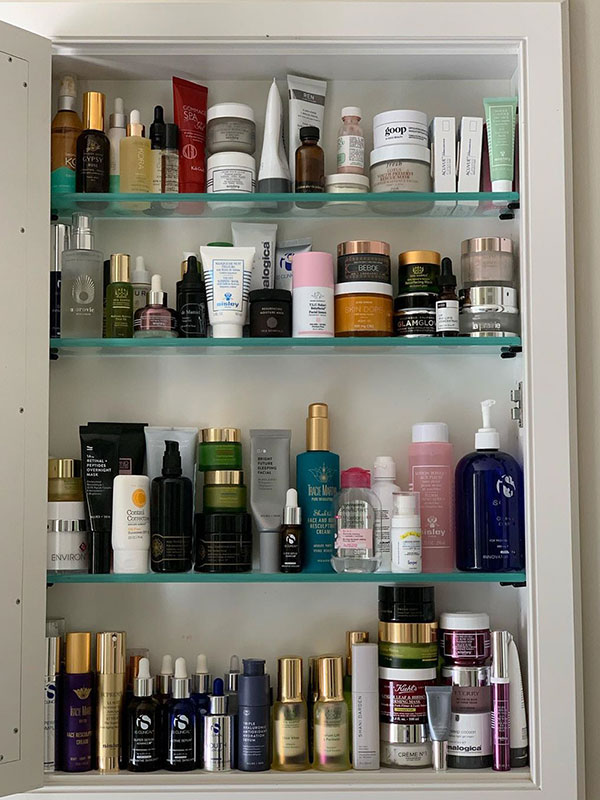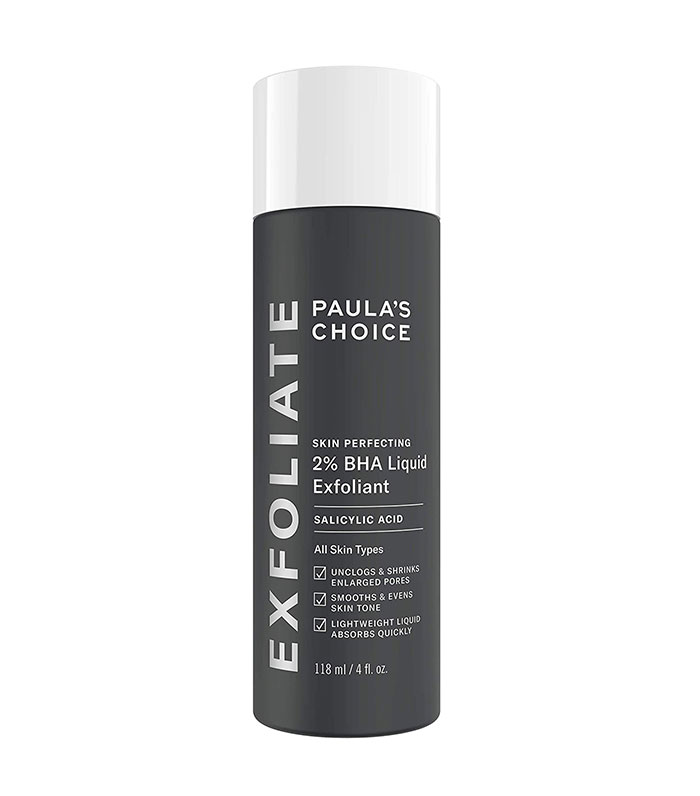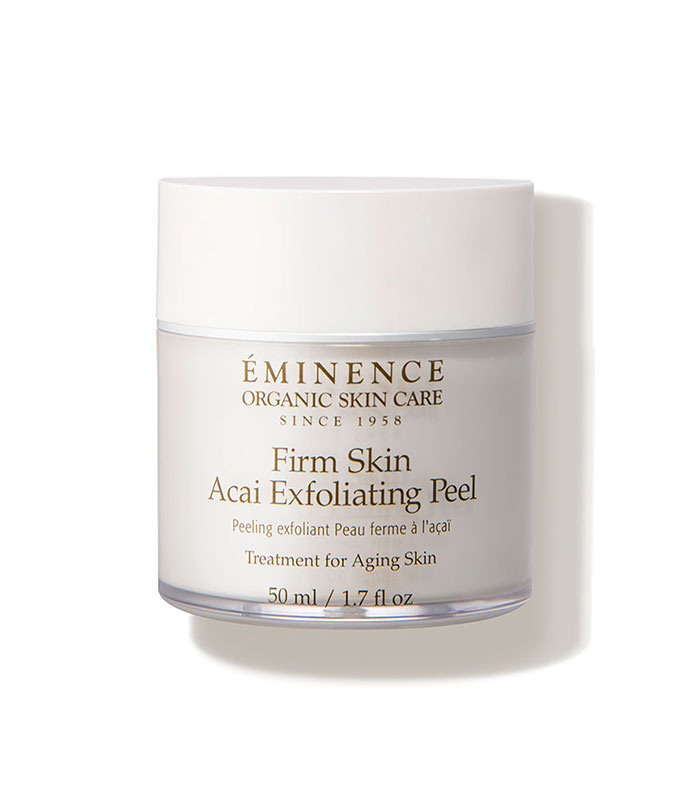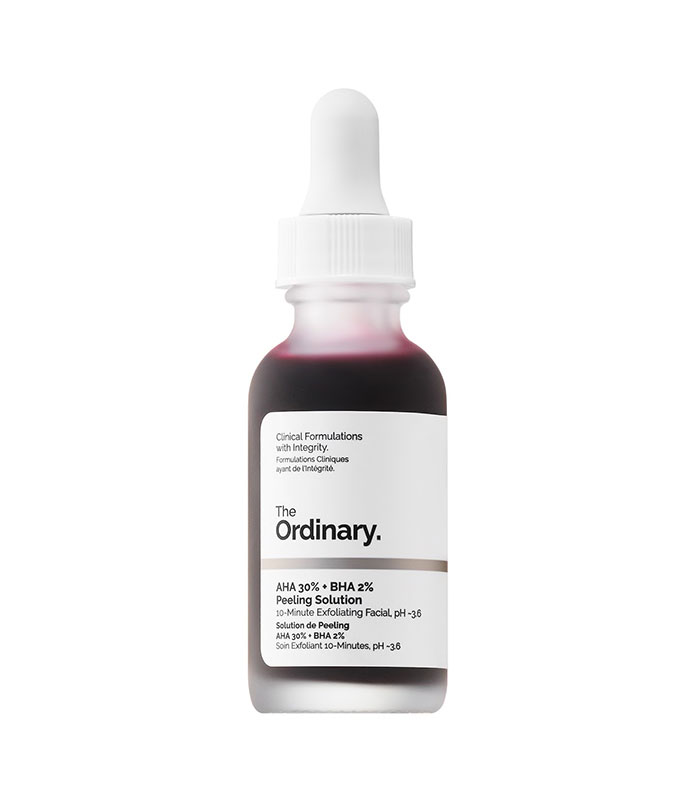April 18, 2022 at 06:00AM
Exfoliating is an essential step in any skincare routine. It sloughs off dead skin cells and unclogs pores while leaving your skin fresh and glowy. You could be using the nicest skincare products in the world, but if you’re not exfoliating on the regular, those fancy serums and creams might not be living up to their potential because you’ve got a lot of dead skin cell buildup.
Not to mention, starting your exfoliating routine early will have your future self thanking you. “Exfoliating young skin serves mostly to keep skin glowing and blemish-free,” says Suneel Chilukuri, MD, of Refresh Dermatology. “As a teenager and young adult, your body naturally has more cellular turnover and often greater sebum production. Natural cell turnover slows with age, which results in pigmentary changes (sunspots), fine lines, and dryness. Some would say exfoliating becomes even more important at this stage to keep stimulate new cell growth and healthier skin.”
But that doesn’t mean it’s just for those with youthful skin. It benefits everyone, regardless of age. For those with “mature” skin, Chilukuri says that regular exfoliating will promote cell turnover and prevent a sallow appearance over time. Women with mature skin might be afraid to exfoliate because they’re wary of damaging or drying out their skin, but it’s still an important step if you’re doing it correctly and using the right products.
So what are some signs that you’re not exfoliating enough if you’re over 40? Chilukuri gave us a few watch-outs:
ADVERTISEMENT
ADVERTISEMENTKate Spade Autumn/Winter Sale |
1. Your skin is dull: Chilukuri says if you’re not exfoliating enough, you might experience flaky, dull, more yellowed skin. Thank you, dead skin cells.

2. You’re using more products: This goes back to your products not being as effective when you have a buildup of dead skin cells. “People may find that they are using more products like moisturizers because the skin surface allows more water loss,” Chilukuri explains. You could be slathering on that expensive moisturizer or cream for nothing. Who knew exfoliating might be able to save you a buck or at least reduce your need to restock so much?
3. Your skin is drier and more irritated: “With each birthday, there is a cumulative effect of pollution and sun exposure,” Chilukuri says. “The upper layers of the skin (epithelium and upper dermis) are thin, and the cells have more space between them at a microscopic level. As a result of the skin barrier disruption, there is greater water loss, called transepidermal water loss (TEWL).” When the barrier is compromised, you might experience annoying skin irritations or issues.

It’s important to note that all exfoliants are not created equal, and if you have mature skin, there are a few things you need to keep in mind. “Most mature skin tends to be a bit drier, so enzymes are a good choice,” Chilukuri explains. “Some mature skin can experience menopausal acne, but it can’t be treated the same way we treat teenage acne. Gentle exfoliants, retinols, and peels are still a good choice for them.” He also recommends chemical peels and fine-grain mechanical exfoliants.
If you go for an in-office treatment, Chilukuri says many of his patients come in monthly for a gentle superficial chemical peel, like Ultra Peel by PCA Skin, which he says contains a higher percentage of lactic acid to improve the surface and hydrate the skin.

What you want to avoid are overly aggressive mechanical exfoliants, which can cause damage no matter your skin type or age. “Any scrubs with large particles like apricot pits should be avoided, as they can cause micro-tears in the skin at any age,” Chilukuri says. “Anything that is too drying or used too frequently should also be avoided.”
As for how to use these exfoliants at home, not much prep is needed—just make sure your skin is clean and makeup-free. “Do not use a washcloth to apply the exfoliating product,” Chilukuri says. “Use your fingertips and after rinsing off the exfoliating agent, immediately apply a hydrating moisturiser. When using the proper exfoliating product, you should not have to stop your retinol. Always use an excellent mineral sunscreen every day.” And you don’t want to overdo it. You don’t want to exfoliate every day, but a few times a week or once a week will help, depending on your skin.
Ready to try some at-home exfoliating products? Take a look at some of our recommendations below.

ADVERTISEMENT
ADVERTISEMENTSports Direct Free Delivery on All Orders! |












ADVERTISEMENT

ADVERTISEMENT
Anya Hindmarch - I AM A PLASTIC BAG
Next up, 11 beauty products I wish I’d used in my 20s now that I’m 35.
This article was originally published at an earlier date and has been updated.
Author Sarah Yang | Whowhatwear
Selected by CWC
ADVERTISEMENT
ADVERTISEMENTUp to 30% off Gift Sets |






